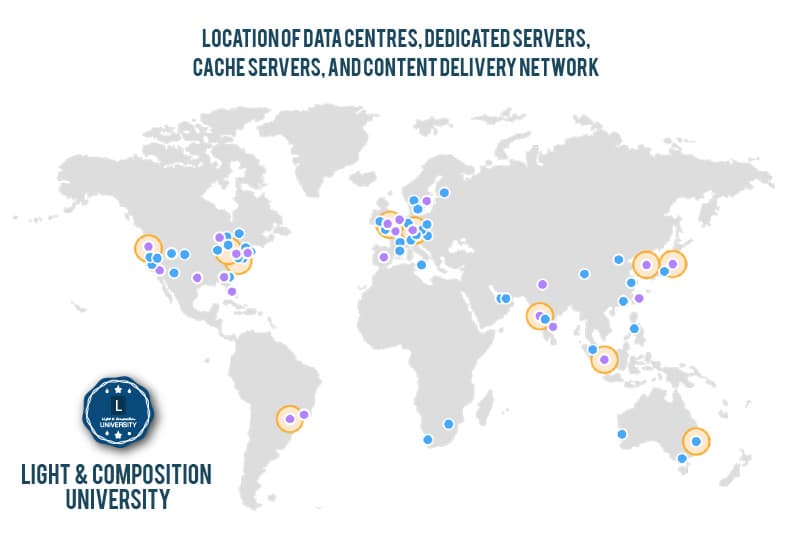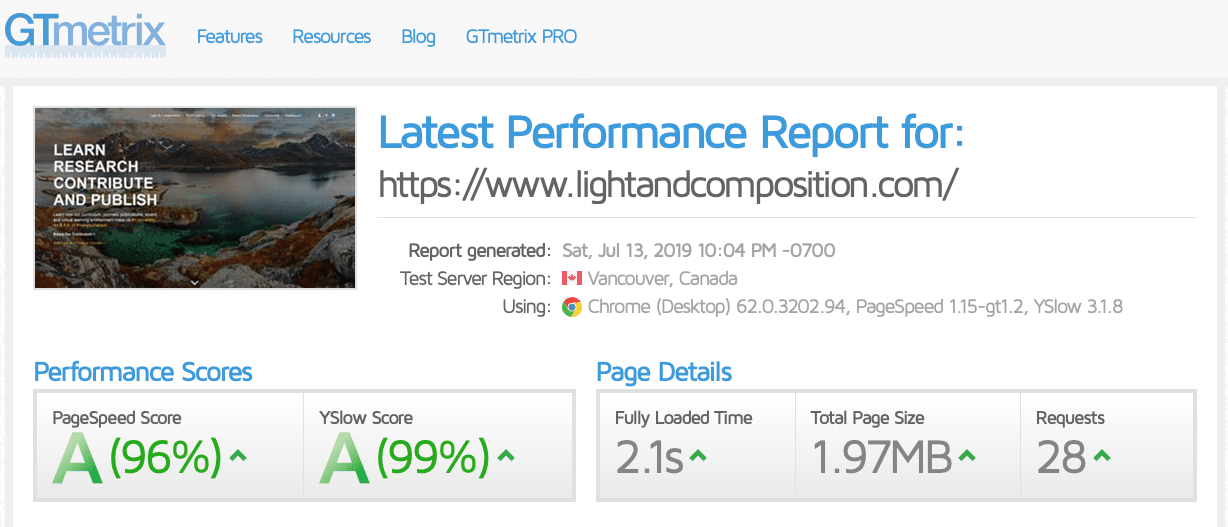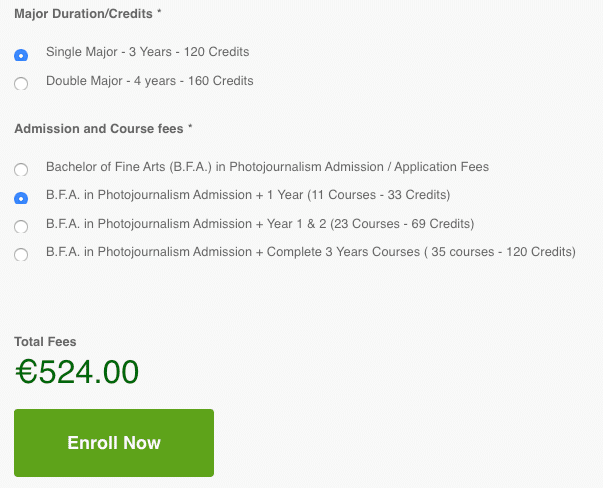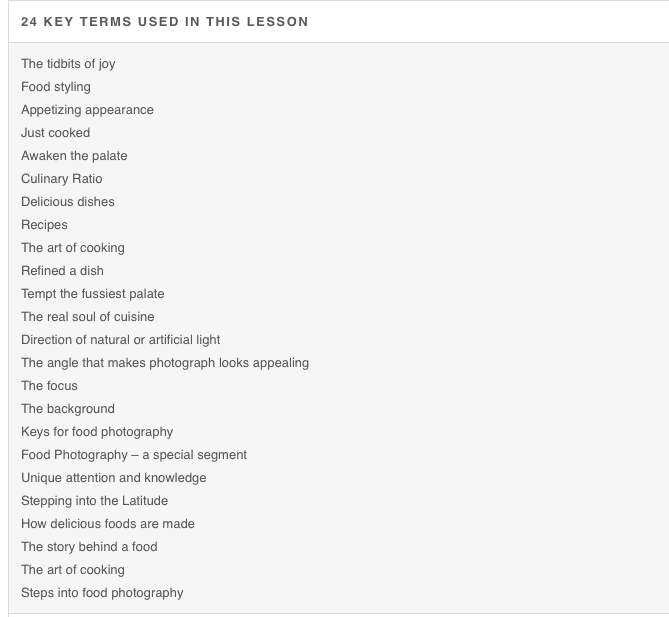Explore
The Most Frequently Asked Questions
Thank you for showing your interest in our university press publications, academic journals, the most prestigious award, its courses, lessons, diplomas, majors, masters, executive masters, doctor of philosophy (PhD), grants, scholarships, open campus, and one-to-one support. Let’s explore the most frequently asked questions we get every day.
Where is your university located?
Welcome to Light & Composition University. As you may have already read, Light & Composition University is an online university. Yes, we are the first complete university, based truly online. What does it mean? It means, our core members work from around the world 24/7. Most of our team members are avid travellers. We work while we travel.
This is the university, this very website now you are browsing with every feature that a university needs to have. From academic advising, courses, lessons, assignments, quizzes, grading for diplomas, majors, post-graduations, to publishing research works as well as carrying out scholarly literature reviews with identifying, examining, and evaluating existing data, finalising thesis, writing and structuring dissertation, and defending one’s Doctor of Philosophy (PhD) at a one-to-one Viva Voce, we have everything in one place; some that many universities only dream to achieve someday.
You may have already known that a website needs server. An university website on the other hand that serves tens and thousands of students around the world, needs data centre, and many dedicated and cache servers around the world. Our servers and data centres are located around the world in 71 cities across 30 countries. No matter where you are in the world, these dedicated and cache servers let you access all our contents with ease. We can assure, there is no university in the world, who have online presence, servers, and data centre like we do. Simply because we are the best at it.
Please visit the University Locations Page for complete list.

How would I know which university server I have been served from? Does the content differ based on location?
Let us explain how our servers serve you. When a viewer makes a request on our university website, first DNS routes the request to the nearest server location in terms of latency. Each server keeps persistent connections with nearest data centre so files are fetched from the origins as quickly as possible. What does it mean? It means if there are changes in the main website, and these changes are not in servers near your location, then the request goes to nearest regional data centre to fetch the objects/files/changes. We are talking changes in byte level here. As soon as the first byte arrives from main data centre, it begins to get forwarded to every other serves we have. All these happen in milliseconds. Because no matter where you are, our goal is to make sure you get our website and its contents in less than 2-3 seconds max.
If you understand how it works, then you should already realise that there is no difference in content based on location. Please visit the University Locations Page for complete list of our server locations.
You can check the latency with www.gtmatrix.com, you can also change the location to check the load time.

GT Matrix
What is the difference between your university scholarships, grants, and discounts? When and how can I get one?
Scholarships are merit based, given to prospective recipients based on previous works and achievements. Grants are need-based and available to students based on criteria such as age, income, value of our programs in their local currencies, and the worthy cause that they mention to our grant/scholarship committee.
Grants and scholarships are available when we get direct contributions, and end of each month revenues of our majors, diplomas, courses, awards, and publications. Please visit the direct contribution page – Make a Contribution to know more.
We always invite and give our students and registered photographers as first priority to receive these grants. Suppose someone contributes a generous $1000, and if there are 10 prospective recipients, who applied for one of our diploma programs, say Diploma in Food Photography, which costs $199, then we divide it among them and give 50% grant/scholarship to each. Often there is a time limit, especially when the number of recipients are more. In that case the rules of first come first serve is applied.
You can apply for a grant/scholarship anytime. Please visit our Scholarships and Grants page, and fill up the required information. If a grant is available, we will email you back.
Discount on the other hand is only given to our students based on their daily academic contributions. Please visit the our Academic Contribution Reward Policy page for more information of how to redeem your contribution point as discount.
How can I use the Scholarships/Grants code?
First all of click on the enrol button from your desired program page. You can see the example in the image below. Then clicking enrol button will take you to the checkout page. In the checkout page, you can see “Did You Contribute to Light & Composition? Click Here to Redeem Your Reward” Please click into that link and paste your scholarships/grants code.


How can I get 25 / 35 / 40 / 50% grant equivalent to $5000 / $6500 / $7500?
Those who participated in our most prestigious photography award for their creativity and hard work in the completion of winning the Photo of the Month are often rewarded with a generous grant. The grant starts from 25% up to 50%. A 25% grant will give you a 25% discount on all our university courses, diplomas, majors, masters, and PhD programs, as well as our advertising services from our creative house and university press publications. Suppose you want to join a 3-year single major in B.F.In Photojournalism, which costs $850 per year, then you can use this 25% grant and only pay the remaining 75%, which is only $637.5 for a whole year.
If you won a position in a Photo of the Month, the grant is 50%, and you need to pay the remaining 50%. Depending on the winning position, there is a 50% discount limit of $5000, $6500, and $7500.
In simple terms, you can enroll in a complete diploma for just over $100, and this limit applies to getting a doctorate program, all our services, and publications up to the discount limit of $5000, $6500, and $7500.
How can I start a course?
We have a step-by-step guide for getting enrolled into a course. Please visit the page “Getting Started with Your University Course”
What kind of study material will I get in a course?
We provide self-study guide books and if needed documentary videos. Our self-study guide books are unique and there are no universities in the world who can give guide books like we have. These guide books are our in-house publications and some of the best-selling photography guide books in the world. We have been selling them for over a decade. Books, such as “The Quintessence of Photography”, “The Essence of Close-up Photography”, “Mastering Food Photography”, and “A Photographer’s Guide to Writing”, have been sold over 200,000+ copies from our online store. Not only they are the best, teachers and photography instructors around the world have been using them as their reference guides. If you want to learn photography, we are the source.
Please visit our Publication page, you can buy them there. However, keep in mind that many of the guide books provided with the course have additional pages based on the requirement of the course, and they frequently get updated from feedback of our students, whereas the books that we sell in our store get a new edition end of each year.
How to study a guide/book that comes with the course?
Depending on the topic, a course may have one or several guide books. No matter which topic you are studying, you will not be successfully grasped the concept until you practice and apply that in real life. That is why we never encourage anyone to read the whole guide beforehand. You should always follow the lesson instruction and read only certain pages mentioned for a lesson then must participate the quiz and the assignments.
Sometimes a lesson might focus on only one or few pages from a guide, but they are designed to make your understanding firm. Remember, our books, articles, and guides are precisely written, and always highlight important terms, which a learner must know and focus on. You will never be able to finish a course if you do not follow the lesson instruction.
What are Key Terms / Words / Concepts / Techniques of a lesson?
For study and research, key terms are specific terms and words which provide the readers and learners with the intended meaning that are essentials for doing assignment during the study and research process. These terms and words also explain how the key techniques related to the key concepts work.
Each of the lesson of a course has key words/terms listed in the lesson instruction page. You as a student and researcher make sure understand them as they are already explained in the guide provided for the lesson. Example of screen shot of key terms in lesson “PHO 221.1: How the Delicious Foods Are Made?” – is given below:

How can I participate in a quiz and submit my assignment?
At the bottom of each lesson there is a button “View Lesson Quiz”. Clicking that button will take you to the quiz page. Assignments are at the bottom of the quiz page.

Typically, assignment questions appear after quiz questions to make sure you understand the key terms related to that lesson and then attempt to do the assignments. Below each of the quiz question, there is a text box, where you can write your answer. Text boxes for Assignments’ answer are bigger in size; as often they require your explanation as well as links of your work.
Are the quizzes and assignments open book?
At Light & Composition University, quizzes, exams, and assignments are open book, which evaluated on understanding rather than recall and memorization. You can go through the materials, and until a certain level, you can even copy/paste them while participating the quiz, however, please read the questions carefully before answering and also notice the mark of each of the question. Do try to answer what is expected.
As we mentioned many times, our books, articles, and guides are precisely written, and always highlight important terms, which a learner must know and focus on, but sometimes may overlook if read a book or guide casually. Quizzes is to make sure you go through all of them one by one, whereas assignments are for practicing and applying them in real life.
Some of the topics and key terms are too basic. Do I need to study them?
It is obvious that there will always be some topics and key terms that are basic, but one should only take the next step if he/she already applied their known knowledge in real life. It does not make that much value if you unable to apply your knowledge in real life scenario. If you think some of the topics are to basic for you, do check the answer of the question – Is there any alternative way to start a quiz other than reading your guides/books?
Is there any alternative way to start a quiz other than reading your guides/books?
Alternatively, to start this lesson, you may participate in the quiz/assignment first to test your prior knowledge. Be honest, and answer what you think is the most suitable for each of the question. If you are unable to complete the lesson assignment or failed in the quiz, then you must study the material that is supplied for that lesson – the guide/book in PDF. Once you finish reading the materials, you may again participate in the quiz by using “reset” the quiz button.
Why am I getting poor grades even though I wrote the answer from the guide?
In higher level courses, especially from second-year students in any of the majors, we expect the answer according to the question. Doing Copy/paste from the guides/books will not work in those. One should understand the concept from the guide first, read the question next, then write answer based on that. Keep in mind that the pass mark is 70-75%, depending on the level of the course.
Why can I only able to open one or first few lessons even though I have paid for the whole course?
There are different levels of courses with different kinds of assignments. Depending on its content, you can only open the next lesson when you complete the current one. If you are good and have firm understanding of a certain topic, then it might take just few mins to an hour to complete a lesson, and open the next one.
We design a course in a way that it helps the learners to understand and practice all the key concepts. Please don’t come to our support and say “the guide has little to no information for me,” but unable to pass a single quiz or complete any assignment.
We publish every good assignment work of our students. Sharing any artistic work whether it’s a fine piece of writing or photography is an integral part of art, which will never become passé. Simply because a work of art is not great until it’s been discovered, shared, and recognized. If you are a know-it-all type person, please read the answer of the question – Some of the topics and key terms are too basic. Do I need to study them?
Well, we do have some courses, which open lesson section wise. The example of a section in a lesson are: basic, advanced, aesthetic, technical, presentation, etc. So, if you complete the basic section, you may open all the lessons for advanced, if and only if the assignments of all the lessons of a section are on same criteria or need same elements.
Which photography book is best for me?
Thank you for showing interest in buying our books. You might wonder, “Why buy your books?” You are not the first one to ask this question. We get this sort of question asked by many people every day.
The answer to this question depends on you, because every individual is at a different level of understanding of photography. Let’s say, when you start reading the book, The Quintessence of Photography: Understanding Composition, it will first guide you through the fundamentals of photography.
Then reading further, you will analyze the standard of photography, as well as learn how you can deal with elements of composition. As this book is vast and covers almost every aspect of photography which a person must know in order to become a good photographer, it will guide you step by step.
However, if you want to learn how to handle your camera and want to know some basics, like depth of field, metering, and using the zone system, then the best book for you is The Essence of Close-up Photography, as close-up photography requires more in-depth understanding of the technical side, and once you have this knowledge, then you can truly utilize the advanced technical discussion in the section “Art & Science” in the book The Quintessence of Photography.
In a nutshell, if you want to master the knowledge of the field of photography, it would be advisable for you to buy two of these books in our special visualization and composition bundle, “Mastering Photography”.
If you are a nature photographer, or would like to start nature photography, then you need to get the “Hello Explorer” bundle. Then again, if you want to buy a single book, we suggest you to visit our books section, and get the book which you need most.
Should I order a photographic bundle or a separate photography book?
If you buy a bundle, you are getting a discount over purchasing the book separately. However many people first want to know how much they can learn from these books, so they only order a single book. Among those people ordering a single book, 95% of them come back to our store within 2 hours and get all our books. So, the choice is in your hands, and our suggestion is, please read about each of the book individually from our books section, and get the book which you need most. Hope that will help you in choosing the right book for you.
I am new to photography. Can I benefit from these books?
Yes, definitely! You can benefit more than anyone else from these books. Do you know why? Because, in order to make a perfect composition, one needs the skill with proper technical understanding and knowledge of composition, and for that our books will be your perfect guide. They will give you technical understanding first and then more to its core, the essence and art of it. However, just remember, understanding is far different than memorizing. You understand a concept when you can apply it, and through that, you can add a creative touch and make it artistic. Our books will not only help develop your artistic skills but also, they will help to hone your technical understanding.
Do I need to buy the new edition again?
No, you do not need to buy these new editions. You will get the copy of new edition within weeks. However, as you can understand, we have a huge client list and if by mistake the new editions do not reach to your email within that time, please let us know. Our support team will always be happy to help you.
How can I get the hard copy of Light & Composition Publication?
We do not support hard copy. For more than half a decade, we are one of the most successful e-publishers in the field of art and photography. Despite the leading e-publisher, we are not here to replace paper books. Instead, goals of Light & Composition Books and Light & Composition University Press are to provide an alternative reading choice for the lover of technology and most importantly, for preserving our beautiful green planet. Creating opportunities for writers and photographers, and expressing their unique vision through our books, magazines, award, and university are some of our key steps to showcase the real image of our civilization.
Can I make a print of your publications?
To ensure copyrights and protect its piracy we cannot give permission to anyone to print our books. For this reason, we do not support any print in our PDF version of the book.
Is there any discount on your university press publications?
Yes, we give a generous amount of discount through the contribution reward. Please check our Contribution Reward Policy
How can I download Light & Composition books, articles, or guides purchases that I have just made?
The moment you made a purchase using debit/credit or direct PayPal through PayPal, you supposed to get an email instantly from our system with a download link if you provide an up to date valid email. At the same time when you complete your payment in PayPal, there is a link that asks you to return back to Light & Composition Dashboard, from where you can download your purchases. However, it’s common for many people not to follow that link, or didn’t notice at that time of paying.
To get to your dashboard, you can simple login to Light & Composition, using the login link from the top right of our website, or “Manage Your Account” from footer. Both the link take you to – https://www.lightandcomposition.com/my-account/
The easiest way to login to Light & Composition is to use your social media, i.e., Facebook, Twitter, or Google+, which we also provide at the top of the checkout page to make the process really easy and simple. If you didn’t already, you can login now using your social media and if the email of your social media and the email you use for purchasing is the same, then you can see your download on your Light & Composition Dashboard.
What does “unaltered” mean for this award?
Unaltered means a photograph that stays true to the original scene, free from added or removed elements. Only minimal global adjustments — such as slight contrast, brightness, saturation, cropping, or black-and-white conversion — are allowed, but they must reflect the natural tone of the moment. All submissions must include the original RAW file for verification.
Why are alterations discouraged?
Because the award celebrates authenticity. Heavy editing changes Value, Clarity, Composition, Style, and Skill — the very criteria our juries use to judge. Over 95% of awarded photographs are unedited, submitted with RAW files straight from the camera. If you’d like to learn how to achieve true color tones without editing, see our publication: The Essence of Close-up Photography.
Can I submit a JPEG converted from RAW with software?
No. You cannot submit a software-converted JPEG as a replacement for your camera’s original JPEG for verification. However, you may use software to apply minor global adjustments (such as exposure, white balance, or contrast) to your RAW file before submission.
Does shooting JPEG mean my photo is “processed”?
Yes, but that’s normal. All cameras apply some level of in-camera processing (such as color profiles, sharpening, noise reduction, and tone adjustments) when creating a JPEG. This is not the same as editing the file afterward in external software. For the contest, we accept original out-of-camera JPEGs and RAW files. Minor global adjustments in software are also allowed, but any local or manipulative editing is not.
Can I use Lightroom or Photoshop?
Opening a file in Lightroom or Photoshop does not automatically mean it’s altered. However, since these tools can change everything in an image, we require the original RAW file for verification. If you shoot in RAW+JPEG, you can safely copy files to your computer without importing them directly into software — keeping your JPEG untouched.
Do you accept black-and-white photographs?
Yes. If your camera captured the photo directly in black-and-white (e.g., Nikon Zf Monochrome Picture Control, Leica Monochrom, or similar), you may submit the original black-and-white file. If the image was converted to black-and-white from a color capture, you must also provide the original color version for verification.
May I know the reason, why my profile, award, or interview is not yet published, even though I’ve submitted it for a while?
From the beginning of 2014, with the opening of the Department of Language and Linguistics in Light & Composition University, we are strongly against publishing a profile, award, or interview that’s written in poor English. In many cases those interviews, award descriptions, or profiles, which are not yet published, do not make any senses at all. Either they are written with the help of an online translator, or there are sentences that constructed poorly and are completely irrelevant with the rest. In either of these cases, an email already has sent to you to correct your submission highlighting your mistakes, or a member of our support team has already informed you to correct them.
In the case of Photographer’s Profile, if you do not follow the clear guidelines given on the right side of the Photograph’s Profile page, then it will not get approved. Furthermore, a profile might not get approved if the photographer haven’t yet submitted photographs for the award.
In the case of Award, please make sure you follow each and every steps mentioned in the selection email. If a photograph does not comply with the award rules, then we strongly suggest you’d better not submit that photograph. To make the procedure fastest, always follow the award rules.
Remember, we are always there to help you to express you creativity, however if any of these issues arise please contact with our 24/7 support team to resolve the issue.
What are my payment options?
The available payment methods vary by country, but typically you can use any credit or debit card through PayPal. They accept American Express, MasterCard, Discover, Visa, and e-check. That means you can use all the options that PayPal supports. You can buy our books without even opening account in Paypal. Once the checkout page redirects you to Paypal, it gives you that option too.
If you are from Bangladesh, Belarus, British Indian Ocean Territory, Cameroon, Ivory Coast, Equatorial, Guinea, Georgia, Ghana, Guam, Haiti, Lebanon, Macedonia, Moldova, Monaco, Nigeria, Pakistan, Paraguay, Puerto Rico, Serbia and Montenegro, Uzbekistan, Virgin Islands, British, Zimbabwe, then please contact our Live Support, our experts will help you round the clock, 24/7. https://www.lightandcomposition.com/support/
Is it safe to use my credit card?
Yes! With Light and Composition, you are always safe. We use the latest encryption technology to keep your information safe. We guarantee that each purchase you make is protected and private. Moreover, to protect your credit card, we are using PayPal. PayPal is a large international corporation, and covers most countries in the world. Those who are new to PayPal, should know that there are over 230 million PayPal users in 190 countries and regions. So, you will be perfectly safe with them.
I do not have PayPal account, how can I pay?
You do not need to own a PayPal account to pay the award registration fee. If you do not have a PayPal account simply click “Don’t have a PayPal account?” in PayPal. Once you click it, they will provide you all options to choose from. PayPal accepts all major credit or debit cards, including Visa, MasterCard, Discover, American Express, and e-check. Upon completing the Registration form, it will re-direct you to our store, then to PayPal. If you do not own a credit or debit card, you can also use a prepaid gift card from Visa, MasterCard, American Express, or Discover, if they are supported in our country.
If you are from Bangladesh, visit the Payment Gateway for Bangladesh page.
If you are from Belarus, British Indian Ocean Territory, Cameroon, Ivory Coast, Equatorial, Guinea, Georgia, Ghana, Guam, Haiti, Lebanon, Macedonia, Moldova, Monaco, Nigeria, Pakistan, Paraguay, Puerto Rico, Serbia and Montenegro, Uzbekistan, Virgin Islands, British, Zimbabwe, then please contact our Live Support, our experts will help you round the clock, 24/7.
https://www.lightandcomposition.com/support/
What are your return policies?
Once you order a publication or pay for course as well as admission, it cannot be canceled or refunded. As our publications are digitalized books and we always take the best measures to ensure copyrights and protect its piracy. Same goes for courses and university admission. Once someone has the access of a course lesson, its content, and academic advising modules, he/she is not eligible for a refund.
Can I cancel or modify my order?
Doing online transactions can sometimes cause unwanted delays or wrong transactions. We always monitor our system. If that happens to you, our support team will be keen to help you and reissue an order.
Is it possible to pay Light & Composition through manual payment?
To protect piracy, we are very strict about manually accept payment, especially in those countries which do not support PayPal. In our store we accept payment through PayPal, which accepts all major credit or debit cards, including Visa, MasterCard, Discover, American Express, and e-check. But most importantly for paying through PayPal, one needs to give the original billing address, and in verified PayPal account, an original credit/debit card, or a bank account is linked. For county like United States, to have a verified PayPal account one has to provide the social security number, as well as Tax ID to PayPal. This gives us the benefit to work with PayPal in the most secure way possible, to identify piracy instantly, if it occurs. To support this, a unique number is generated with each purchase and gets attached with our books and magazines.
Manually purchasing books and magazines are still possible for countries like Bangladesh, Belarus, British Indian Ocean Territory, Cameroon, Ivory Coast, Equatorial, Guinea, Georgia, Ghana, Guam, Haiti, Lebanon, Macedonia, Moldova, Monaco, Nigeria, Pakistan, Paraguay, Puerto Rico, Serbia and Montenegro, Uzbekistan, Virgin Islands, British, Zimbabwe, but one needs a guarantor.
First, please contact our 24/7 support and let us know which book or magazine you are interested in? You can visit our store from this link –
https://www.lightandcomposition.com/official-store/
In the meantime, we are going to talk with few people of our team located in your country, who will identify you from those people who know you well. Don’t worry, if you are a photographer, then it’s a small word.
What are your privacy policies?
Light and Composition is committed to respecting and protecting your privacy. We believe that our site should be a safe environment for anyone who visits and purchases. As a seller of books and well known publisher for our magazine, we are also committed to providing you the best possible online service and experience as well as the best products. See our complete Privacy Policy.
